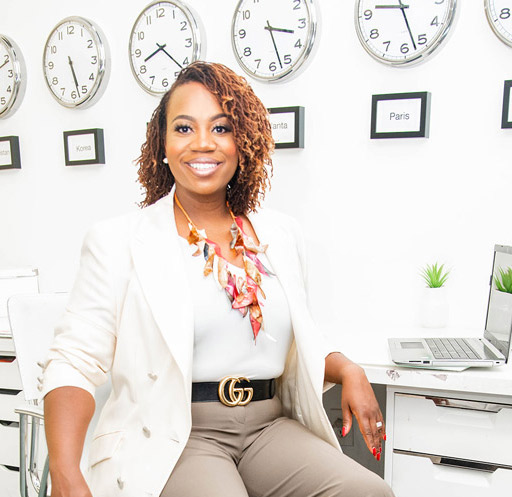
Women’s health has tremendously been undermined and overlooked in the healthcare system. In the doctor’s office, women are often not heard or seen. Even worse, Black women are rarely acknowledged.
Fortunately, a few doctors have decided to change that narrative. Gynecologist Soyini Hawkins, who works at the Fibroid and Pelvic Wellness Center in the state of Georgia, firmly believes in women’s health. In particular, the surgeon has become a strong advocate for women who suffer from endometriosis.
According to research, “Black women are only about half as likely to be diagnosed with endometriosis compared to white women. Conversely, Asian women were more than 50% more likely to have this diagnosis than white women.”
Unfortunately, the vast majority of women who suffer from this disease are ignored by doctors, especially male physicians. Many healthcare providers have the misconception that endometriosis is just a part of “womanhood” or that a woman’s pain is often fabricated.
Fortunately, doctors like Hawkins believe that women, especially Black women, deserve to be heard and treated as human beings. Taking things a step further, Hawkins believes that treating endometriosis isn’t a “one-and-done” deal, it’s a life-long process. In other words, the surgeon wants to provide her patients with long-term health options and help them reach their goals.
RELATED: Black Women & Endometriosis
Dr. Soyini Hawkins Pushes Pass Barriers
During an interview with The American Journal of Managed Care (AJMC), Hawkins shared her plans to improve the overall quality of life for patients suffering from endometriosis.
The surgeon believes the first step in doing so is eradicating barriers upheld by the healthcare system. Hawkins says that there are several factors that inhibit patients from receiving the care and attention they need.
One of the biggest contributors is a severe lack of access to specialists. Hawkins argues that oftentimes the patients need specialized care to get to the root cause of their endometriosis.
Other factors include expensive treatments, the patient’s lack of education about the chronic disease, misconceptions and being ignored by doctors.
“Hopefully, we're starting to move away from that, because we're starting to do more patient-centered care, and because there's a lot more advocacy going on to just treat every human being like a human being when they walk in your office. That has been, unfortunately, quite a bit of a barrier for a lot of women,” Hawkins said in talks with The American Journal of Managed Care.
RELATED: Natural Remedies For Endometriosis
Knowing When a Treatment Is Successful
As an advocate for women’s health, Hawkins deeply respects her patients and their concerns. Even more so, she’s willing to go the distance to make sure they receive the proper care and treatment they need.
When The American Journal of Managed Care asked what’s her definition of a successful treatment, Hawkins stated that reaching her patient’s long-term goals is a huge win for her. “Do they want to have more children? Do they wish to have more pain-free days?”
Furthermore, Hawkins knows that in order to reach those goals, we have to first address the recurrence of the disease. Research states that the recurrence rate is 45%. That’s even after a surgical procedure takes place. Hawkins believes that the percentage derives from the fact that endometriosis is a chronic disease. “It’s not a one-and-done deal,” the surgeon tells the publication.
Furthermore, the surgeon believes that treatment should go beyond whether or not a patient feels better.
Instead, healthcare providers should be concerned about the long-term effects and how it impacts their life several years from now.
“Coming up with the goal is for the rest of their life to get them to the other side of what they may have been suffering for sometimes over a decade with,” Hawkins told AJMC.
In the end, the Georgia-based gynecologist wants women everywhere to know they don’t have to suffer in pain. As an endometriosis sufferer herself, Hawkins knows first-hand that there’s light at the end of the tunnel.








